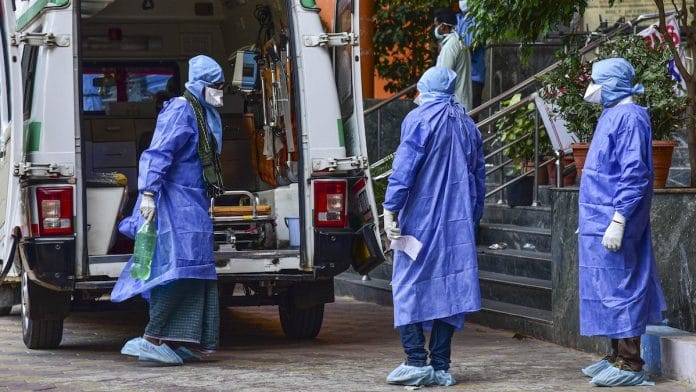New Delhi: The Department of Science and Technology (DST), which functions under the Ministry of Science and Technology, Monday released a fund of Rs 1 crore to help a Pune-based start-up scale up the production of a device that promises to significantly reduce the presence of the novel coronavirus in a closed room within an hour.
The device will be produced under the DST’s NIDHI PRAYAS programme, which supports researchers in developing prototypes of innovative ideas.
At least 1,000 of these devices will soon be ready for installation in various hospitals in Maharashtra, the DST said in a statement.
The device, called Scitech Airon, is a negative ion generator developed by JClean Weather Technologies, a company incubated under Pune’s Science and Technology Park.
Using CSR funds donated by Finolex Pipes, the start-up has already installed four of these devices at Naidu Hospital, Pune’s first quarantine facility.
Also read: Abbott Laboratories launches 5-minute coronavirus test that is portable
How does the device work
The device works by generating approximately a hundred million negative ions every eight seconds. The negative ions generated by the ionizer forms clusters around microparticles such as airborne mold, influenza viruses or coronaviruses, and render them inactive.
The ions trigger a chemical reaction by creating highly reactive OH groups called hydroxyl radicals, which act like ‘atmospheric detergents’.
The same way in which soap and water help disintegrate the outer lipid layer of the coronavirus, these ‘atmospheric detergents’ help break down the outer protein of the allergens, viruses and bacteria.
The DST also claims this technology increases the body’s resistance to infections for upto 20-30 days.
The device can also clean up the air and disinfect quarantine facilities, and help better protect medical staff against infection.
While researchers at the Pune start-up claim the device has proven to be effective against influenza virus, bacteria and airborne fungi, well known virologist T. Jacob John told ThePrint whether it will be effective against the novel coronavirus will have to be ascertained by further studies.
“Theoretically, it should work, since these ions will seek out the viruses and destroy them, but whether this will be really be effective will have to be ascertained through further studies,” said John, who retired as a professor at Christian Medical College, Vellore.
Also read: Coronavirus has challenged & changed how world’s top scientists work to find a cure






